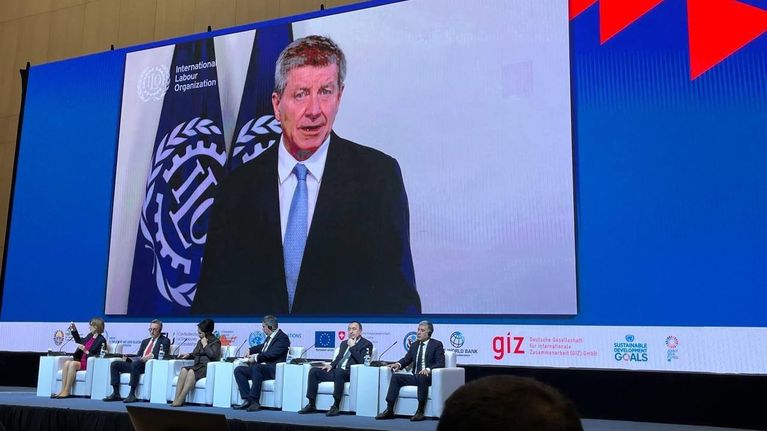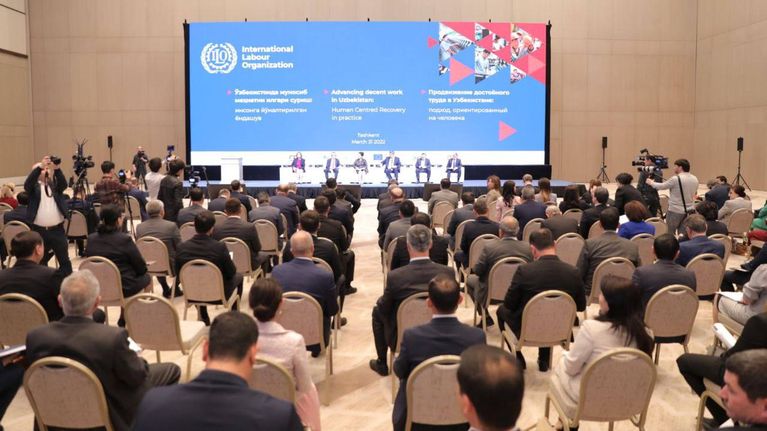ILO and Uzbekistan: advancing decent work and human-centered recovery
Uzbekistan’s fast-moving economic and social reforms are instrumental for achieving the Decent Work Agenda through the country's adherence to complying with ILO standards and promoting decent work. This was stated by the participants of the round table entitled “Advancing decent work in Uzbekistan: Human-centred recovery in practice” held on 31 March 2022 in Tashkent.

In her welcome speech, Tanzila Narbaeva, Chairperson of the Uzbek Senate highlighted that the round table “has become an annual event and a good tradition. We would like to express special appreciation to the International Labour Organization for the support and close cooperation with us. The extensive reforms that are being implemented in Uzbekistan have the decision by the Cotton Campaign to lift the global boycott of Uzbekistan cotton products. This achievement became possible thanks to strong political will of the Uzbekistan President and through the work of the National commission on combatting human trafficking and the eradication of forced labour together with ILO, its tripartite constituents, and the civil society”.

According to Guy Ryder, Director General of the ILO, “as the ILO, we are happy to continue support and facilitate this process under a new expanded Decent Work Country Programme - the first one in this region that is aligned with the UN Sustainable Development Cooperation Framework. We are determined to fully contribute to achieve such ambitious objectives and continue to provide full support to all our Constituents, including in Uzbekistan. We are determined to pursue our excellent cooperation with Uzbekistan”.
Heinz Koller, ILO Regional Director for Europe and Central Asia, noted that “this new DWCP is the result of successful tripartite cooperation that marks a new stage in our relationship. Today, Uzbekistan has achieved its goal of eradicating both systemic child and forced labour in the cotton sector and we all agree that forced and child labour have been left in the past”.

The new Decent Work Country Programme for 2021-2025 is structured around the following key areas: improving the regulatory framework governing labour relations; enhancing decent work and better employment opportunities for youth, women and vulnerable groups, generated by inclusive and equitable economic growth; extending the access of the most vulnerable groups and workers to equitable, inclusive and quality education and social protection; and strengthening social dialogue and the institutional capacities of the social partners.